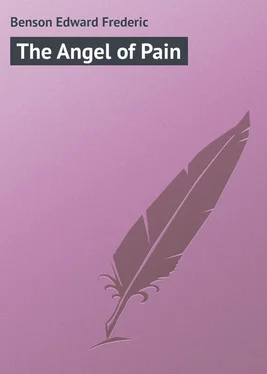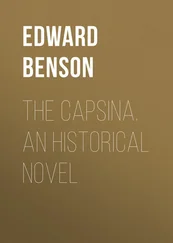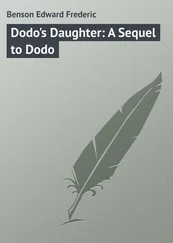Edward Benson - The Angel of Pain
Здесь есть возможность читать онлайн «Edward Benson - The Angel of Pain» — ознакомительный отрывок электронной книги совершенно бесплатно, а после прочтения отрывка купить полную версию. В некоторых случаях можно слушать аудио, скачать через торрент в формате fb2 и присутствует краткое содержание. Жанр: foreign_prose, на английском языке. Описание произведения, (предисловие) а так же отзывы посетителей доступны на портале библиотеки ЛибКат.
- Название:The Angel of Pain
- Автор:
- Жанр:
- Год:неизвестен
- ISBN:нет данных
- Рейтинг книги:5 / 5. Голосов: 1
-
Избранное:Добавить в избранное
- Отзывы:
-
Ваша оценка:
- 100
- 1
- 2
- 3
- 4
- 5
The Angel of Pain: краткое содержание, описание и аннотация
Предлагаем к чтению аннотацию, описание, краткое содержание или предисловие (зависит от того, что написал сам автор книги «The Angel of Pain»). Если вы не нашли необходимую информацию о книге — напишите в комментариях, мы постараемся отыскать её.
The Angel of Pain — читать онлайн ознакомительный отрывок
Ниже представлен текст книги, разбитый по страницам. Система сохранения места последней прочитанной страницы, позволяет с удобством читать онлайн бесплатно книгу «The Angel of Pain», без необходимости каждый раз заново искать на чём Вы остановились. Поставьте закладку, и сможете в любой момент перейти на страницу, на которой закончили чтение.
Интервал:
Закладка:
Madge showed no surprise; she had known what was coming.
“Yes, we took a turn or two,” she said.
Her mother sat down; Madge had not turned from the window and was still looking out.
“Kindly attend, Madge,” she said. “It was very indiscreet, and you know it. I don’t think Mr. Home liked it.”
Of the girl who had talked so eagerly and naturally to Evelyn on the terrace there was hardly a trace; Madge’s face had grown nearly as hard as her mother’s.
“I am not bound just yet to do all Mr. Home likes,” she said.
“You are bound, if you are a sensible creature, at all events not to run any risks, especially now.”
Madge turned away from the window.
“You mean until the bargain is completed. Supposing I refuse?” she said, and there was a little tremor in her voice, partly of contempt, partly of fear.
Lady Ellington, as has been remarked, never let her emotions, however justifiable, run away with her; she never, above all, got hot or angry. Causes which in others would produce anger, produced in her only an additional coldness and dryness, which Madge was, somehow, afraid of with unreasoning nightmare kind of fear.
“I will not suppose anything so absurd!” said her mother. “You are twenty-five years old, and you have never yet fallen in love at all. But as I have pointed out to you before, you will be far happier married than living on into the loneliness and insignificance of being an old maid. Lots of girls never fall in love in the silly, sentimental manner which produces lyrics. You are quite certainly one of them. And as certainly Mr. Home is in love with you.”
“We have been into this before,” said the girl.
“It is necessary, apparently, to go into it again. Mr. Home, I feel certain, is going to propose to you, and you should not do indiscreet things. With regard to your refusing him, it is out of the question. He is extremely suitable in every way. And you told me yourself you had made up your mind to accept him.”
“You made up my mind,” said Madge; “but it comes to the same thing.”
“Precisely. So please promise me not to do anything which a girl in your position should not do. There is no earthly harm in your walking with any penniless artist in the moonlight, if you were not situated as you are. But at the moment it is indiscreet.”
“You are wrong if you suppose that Mr. Dundas said anything to me which could possibly be interpreted into a tender interest,” said Madge. “He called attention to the moon merely in order to remark that it was out of drawing.”
“That never occurred to me,” said her mother, “though it would be a matter of total indifference whether he took a tender interest in you or not. I merely want your promise that you will not repeat the indiscretion.”
“Oh, certainly,” said Madge.
Lady Ellington had put her bedroom candle on Madge’s dressing-table. As soon as she had received the assurance she required, she at once rose from her chair and took it up. But with it in her hand she stood silent a moment, then she put it down again.
“You have spoken again of things I thought were settled, Madge,” she said, “and I should like your assurance on one point further. We agreed, did we not, that it would be far better for you to marry than remain single. We agreed also that you were not of the sort of nature that falls passionately in love, and we agreed that you had better marry a man whom you thoroughly like and esteem. Mr. Home is such a man. Is that correctly stated?”
“Quite,” said Madge. “In fact, I don’t know why I suggested that I should refuse him.”
“You agree to it all still?”
Madge considered a moment.
“Yes; things being as they are, I agree.”
“What do you mean by that exactly?”
Madge got up, and swept across the room to where her mother stood.
“I have long meant to say this to you, mother,” she said, “but I never have yet. I mean that at my age one’s character to some extent certainly is formed. One has to deal with oneself as that self exists. But my character was formed by education partly and by my upbringing, for which you are responsible. I think you have taught me not to feel – to be hard.”
Lady Ellington did not resent this in the slightest; indeed, it was part of her plan of life never to resent what anybody did or said; for going back to first principles, resentment was generally so useless.
“I hope I have taught you to be sensible,” she remarked.
“It seems to me I am being very sensible now,” said Madge, “and you may certainly take all the credit of that, if you wish. I fully intend to do, at any rate, exactly what you suggest – to accept, that is to say, a man whom I both esteem and respect, and who is thoroughly suitable. For suitable let us say wealthy – because that is what we mean.”
Lady Ellington qualified this.
“I should not wish you to marry a cad, however wealthy,” she said.
Madge moved softly up and down the room, her dress whispering on the carpet before she replied.
“And it does not strike you that this is rather a cold-blooded proceeding?” she asked.
“It would if you were in love with somebody else. In which case I should not recommend you to marry Mr. Home. But as it is, it is the most sensible thing you can do. I would go further than that; I should say it was your duty.”
Again Madge walked up and down without replying at once.
“Ah, it is cold-blooded,” she said, “and I am doing it because I am cold-blooded.”
Then she stopped opposite her mother.
“Mother, when other girls fall in love, do they only feel like this?” she asked. “Is this all? Just to feel that for the rest of one’s life one will always have a very pleasant companion in the house, who, I am sure, will always deserve one’s liking and esteem?”
Lady Ellington laughed.
“My dear, I can’t say what other girls feel. But, as you remark, it is all you feel. You are twenty-five years old, and you have never fallen in love. As you say, you have to take yourself as you are. Good night, dear. It is very late.”
She kissed her, left her, and went down the passage to her own room. She was a very consistent woman, and it was not in the slightest degree likely that she should distrust the very sensible train of reasoning which she had indicated to her daughter, which also she had held for years, that a sensible marriage is the best policy in which to invest a daughter’s happiness. Lady Ellington’s own experience, indeed, supplied her with evidence to support her view, for she herself was an excellent case in point, for her husband had been a man with whom she had never been the least in love, but with whom, on the other hand, she had managed to be very happy in a cast-iron sort of way. She felt, indeed, quite sure, in her reasonable mind, that she was acting wisely for Madge, and it was not in her nature to let an unreasonable doubt trouble her peace. But an unreasonable doubt was there, and it was this, that Madge for the first time, as far as she knew, seemed to have contemplated the possibility of passion coming into her life. There had been in her mind, so her mother felt sure, an unasked question – “What if I do fall in love?”
Lady Ellington turned this over in the well-lit chamber of her brain as she went to bed. But her common-sense came to her aid, and she did not lie awake thinking of it. She had made up her mind that such a thing was unlikely to the verge of impossibility, and she never wasted time or thought over what was impossible. Her imagination, it is true, was continually busy over likely combinations; there were, however, so many of these that things unlikely did not concern her.
The men meantime had gone to the smoking-room, and from there had moved out in general quest of coolness on to the terrace. The moon had risen nearly to the zenith, and no longer offended Evelyn’s sense of proportion, and the night, dusky and warm, disposed to personal talk. And since neither Evelyn nor Philip had seen Tom Merivale for a year, it was he who had first to be brought up to date.
Читать дальшеИнтервал:
Закладка:
Похожие книги на «The Angel of Pain»
Представляем Вашему вниманию похожие книги на «The Angel of Pain» списком для выбора. Мы отобрали схожую по названию и смыслу литературу в надежде предоставить читателям больше вариантов отыскать новые, интересные, ещё непрочитанные произведения.
Обсуждение, отзывы о книге «The Angel of Pain» и просто собственные мнения читателей. Оставьте ваши комментарии, напишите, что Вы думаете о произведении, его смысле или главных героях. Укажите что конкретно понравилось, а что нет, и почему Вы так считаете.











